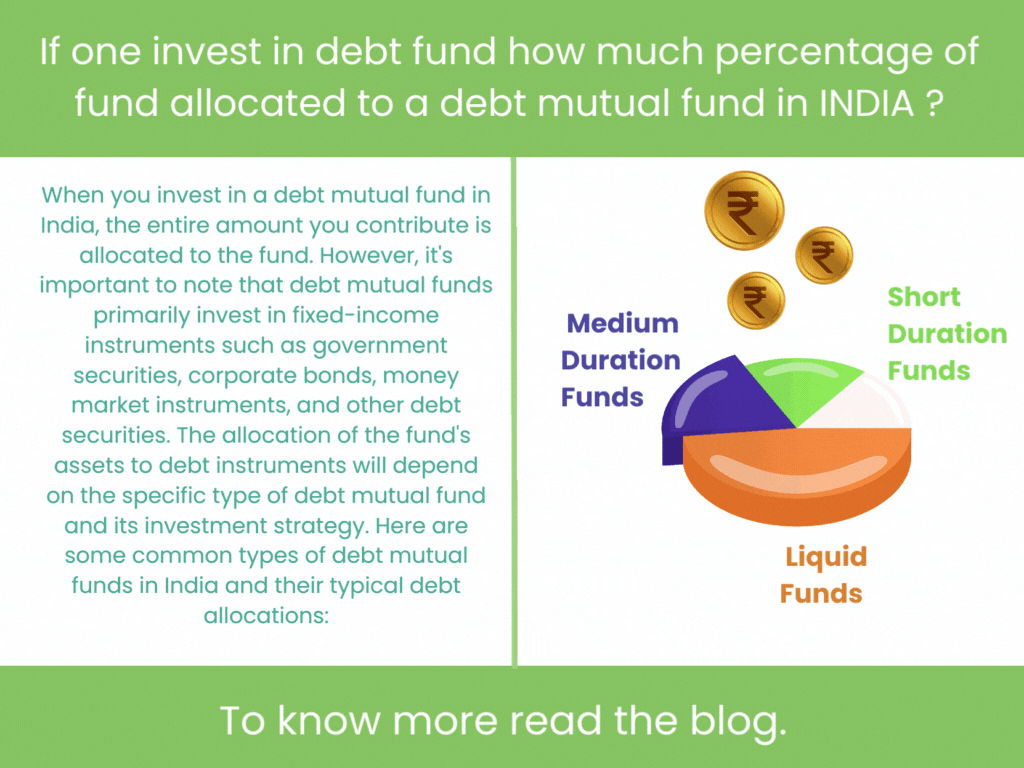If one invest in debt fund how much percentage of fund allocated to a debt mutual fund in INDIA ?
When you invest in a debt mutual fund in India, the entire amount you contribute is allocated to the fund. However, it's important to note that debt mutual funds primarily invest in fixed-income instruments such as government securities, corporate bonds, money market instruments, and other debt securities. The allocation of the fund's assets to debt instruments will depend on the specific type of debt mutual fund and its investment strategy. Here are some common types of debt mutual funds in India and their typical debt allocations:
Liquid Funds: These funds primarily invest in very short-term money market instruments and debt securities with maturities of up to 91 days. Debt allocation is usually close to 100% of the fund's assets.
Ultra Short Duration Funds: These funds invest in a mix of money market instruments and debt securities with short maturities, typically up to one year. Debt allocation is generally high, ranging from 80% to 100% of the fund's assets.
Short Duration Funds: These funds invest in debt securities with a slightly longer duration compared to ultra short duration funds. Debt allocation typically ranges from 65% to 85% of the fund's assets.
Medium Duration Funds: These funds invest in debt securities with medium-term durations. Debt allocation can range from 40% to 70% of the fund's assets.
Corporate Bond Funds: These funds focus on investing in corporate bonds issued by companies. Debt allocation is typically high, ranging from 80% to 100% of the fund's assets.
Dynamic Bond Funds: These funds have the flexibility to dynamically adjust their debt allocation based on the interest rate and market conditions. Debt allocation can vary widely depending on the fund manager's view on interest rates and credit risk.
It's important to note that debt mutual funds also hold a small portion of their assets in cash, cash equivalents, and other money market instruments to meet liquidity requirements and manage portfolio flows.
When you invest in a debt mutual fund, the fund manager allocates the collective pool of funds to various debt securities based on the fund's investment strategy and objectives. The fund manager's expertise and research guide the selection of securities and the allocation within the fixed-income universe.
Before investing in any debt mutual fund, it's crucial to carefully read the fund's offer documents, prospectus, and fact sheets to understand its investment approach, credit quality of the portfolio, interest rate sensitivity, expenses, and associated risks. Consider your investment horizon, risk tolerance, and financial goals to select the most suitable debt mutual fund for your investment needs.


